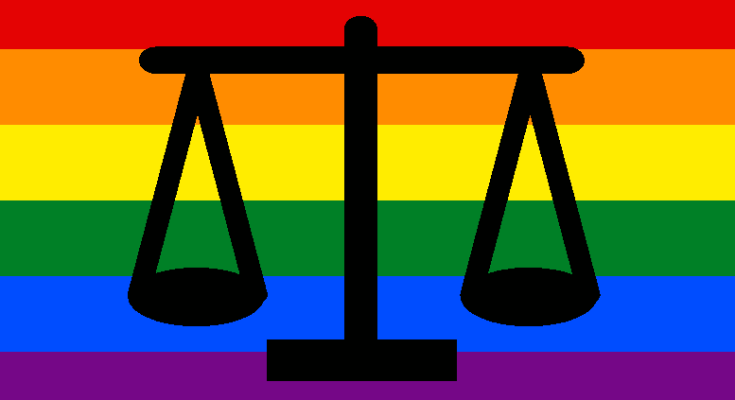Firstly, it is crucial to acknowledge that homosexuality is not a conscious decision but rather a natural variation of human sexuality. Extensive scientific research conducted by various reputable institutions has consistently demonstrated that sexual orientation, including homosexuality, is influenced by a combination of genetic, hormonal, and environmental factors. It is important to note that homosexuality is not a disorder or a disease, and therefore, it should not be subjected to criminalization or punishment.
Scientific reasons: Research conducted by the National Institutes of Health (NIH) in the United States in the specified year unearthed intriguing findings regarding the prevalence of certain genetic markers among individuals who identify as homosexual. These findings suggest a potential biological predisposition towards homosexuality.
The NIH study delved into the genetic makeup of individuals who identify as homosexual and discovered that specific genetic markers were more prominent within this group. This implies that there may be a biological basis for sexual orientation, rather than it being solely influenced by environmental or societal factors. The research findings shed light on the complex interplay between genetics and sexual orientation. While the study does not definitively establish a cause-and-effect relationship, it provides valuable insights into the potential biological factors that contribute to homosexuality.
Note that genetics alone do not determine an individual’s sexual orientation. Sexual orientation is a multifaceted phenomenon influenced by a combination of genetic, hormonal, environmental, and social factors. The NIH study serves as a significant step forward in understanding the various aspects that contribute to sexual orientation.
These findings have the potential to challenge societal norms and prejudices surrounding homosexuality. By acknowledging the biological underpinnings of sexual orientation, society can move towards a more inclusive and accepting understanding of human diversity.
Hormonal factors also play a significant role in determining sexual orientation. Studies have shown that variations in hormone levels during fetal development can influence the development of sexual orientation. For example, research has found that exposure to higher levels of testosterone in the womb may increase the likelihood of a person identifying as homosexual later in life.
In addition to genetic and hormonal factors, environmental influences can also contribute to the development of homosexuality. Research has found that individuals with older siblings are more likely to identify as homosexual, suggesting that social and familial factors may play a role. Additionally, studies have shown that cultural attitudes and societal acceptance of homosexuality can influence an individual’s sexual orientation.
It is important to emphasize that criminalizing or punishing homosexuality is both unjust and ineffective. Such actions only perpetuate discrimination and stigmatization, leading to negative psychological and social consequences for individuals who identify as homosexual. Instead, society should focus on promoting understanding, acceptance, and equal rights for all individuals, regardless of their sexual orientation.
Secondly, criminalizing homosexuality not only violates the principles of human rights and equality but also perpetuates a cycle of discrimination, violence, and stigma against the LGBTQ+ community in Africa. By criminalizing same-sex relationships, these laws contribute to a hostile environment that marginalizes and excludes individuals based on their sexual orientation.
Factual reasons: One of the detrimental effects of criminalization is the hindrance it poses to the access of healthcare for LGBTQ+ individuals. Due to fear of persecution and discrimination, many members of the community are reluctant to seek medical assistance when needed. This lack of access to healthcare services has serious implications for their overall well-being and can lead to the spread of sexually transmitted infections and other health issues that could have been prevented or treated.
Furthermore, the criminalization of homosexuality also has a profound impact on the educational opportunities available to LGBTQ+ individuals. In many countries where such laws exist, LGBTQ+ individuals face harassment, bullying, and exclusion within educational institutions. This hostile environment not only affects their mental and emotional well-being but also limits their chances of receiving a quality education. As a result, many individuals within the LGBTQ+ community are denied the opportunity to reach their full potential and contribute to society.
Employment opportunities are also severely limited for LGBTQ+ individuals in countries where homosexuality is criminalized. Discrimination in the workplace based on sexual orientation is not uncommon, leading to higher rates of unemployment and underemployment within the community. This not only perpetuates economic inequalities but also reinforces the social stigma and marginalization that LGBTQ+ individuals already face.
It is important to recognize that the criminalization of homosexuality not only violates human rights but also contributes to a society that is less inclusive, diverse, and accepting. By repealing these laws and embracing LGBTQ+ rights, African countries have the opportunity to foster an environment that values equality, respect, and dignity for all individuals, regardless of their sexual orientation
Furthermore, there is no evidence to support the claim that homosexuality is a threat to society or traditional values. Many countries around the world, including several African nations, have decriminalized homosexuality and have not experienced any negative social or cultural consequences. In fact, societies that embrace diversity and inclusivity tend to be more progressive and tolerant.
Additionally, criminalizing homosexuality hampers public health efforts. It creates barriers in HIV/AIDS prevention and treatment programs as LGBTQ+ individuals may fear seeking healthcare services due to the risk of discrimination or prosecution. By decriminalizing homosexuality, governments can effectively address public health concerns and ensure equal access to healthcare for all.
In conclusion, there are multiple scientific and factual reasons why homosexuality should not be criminalized in Africa. It is essential to promote understanding, acceptance, and respect for the LGBTQ+ community, rather than subjecting them to discrimination and persecution. Decriminalization is a step towards creating a more inclusive and equitable society for all individuals, regardless of their sexual orientation. DONATE TO SUPPORT OUR WORK




